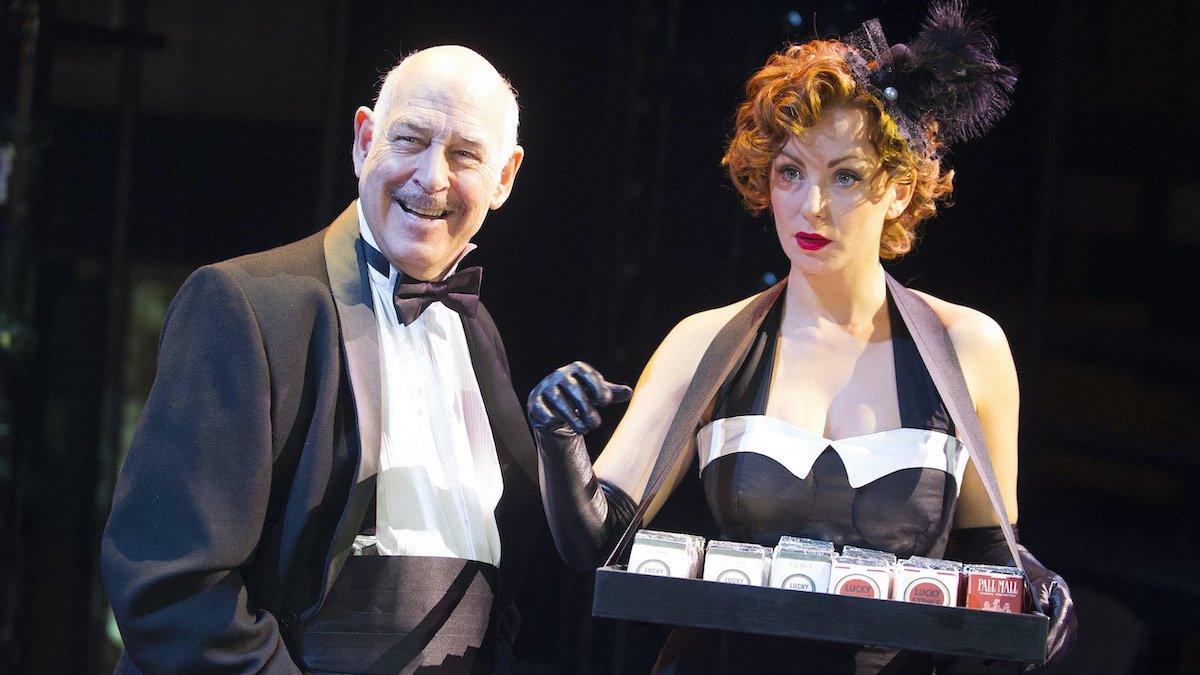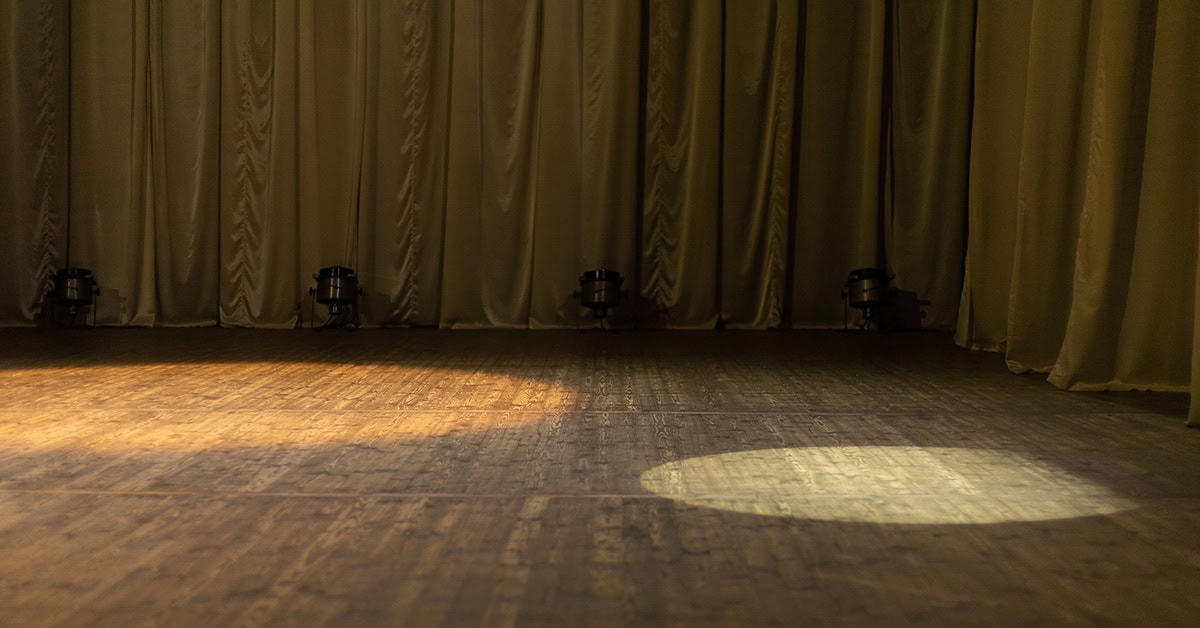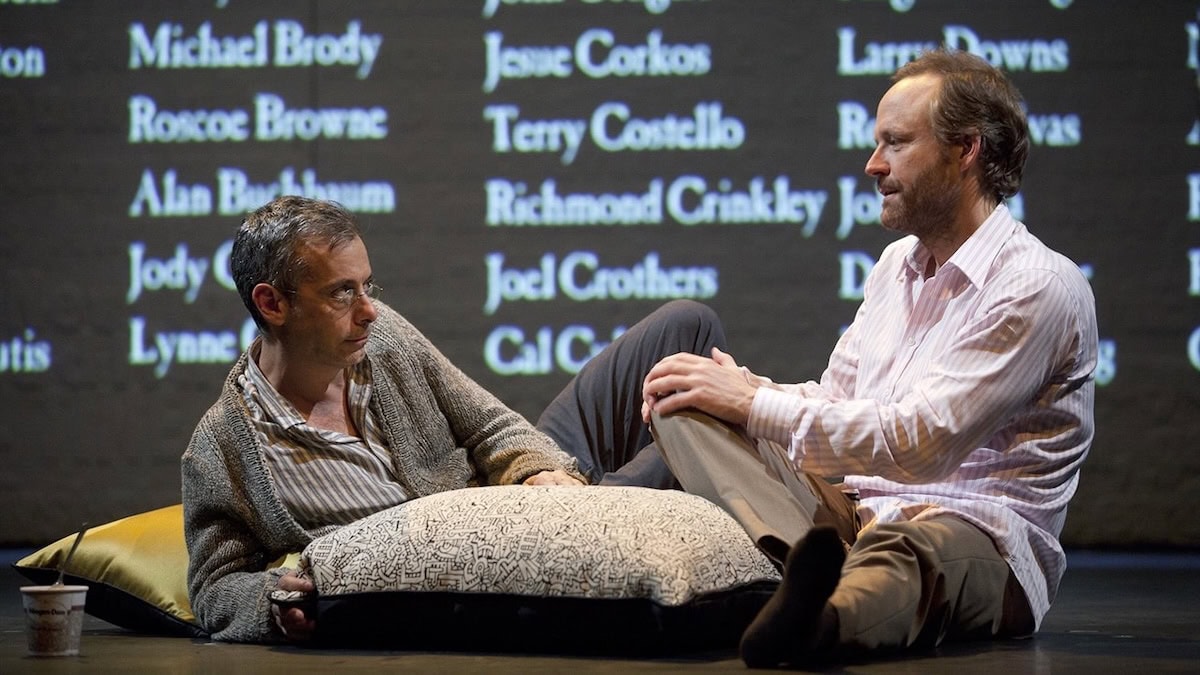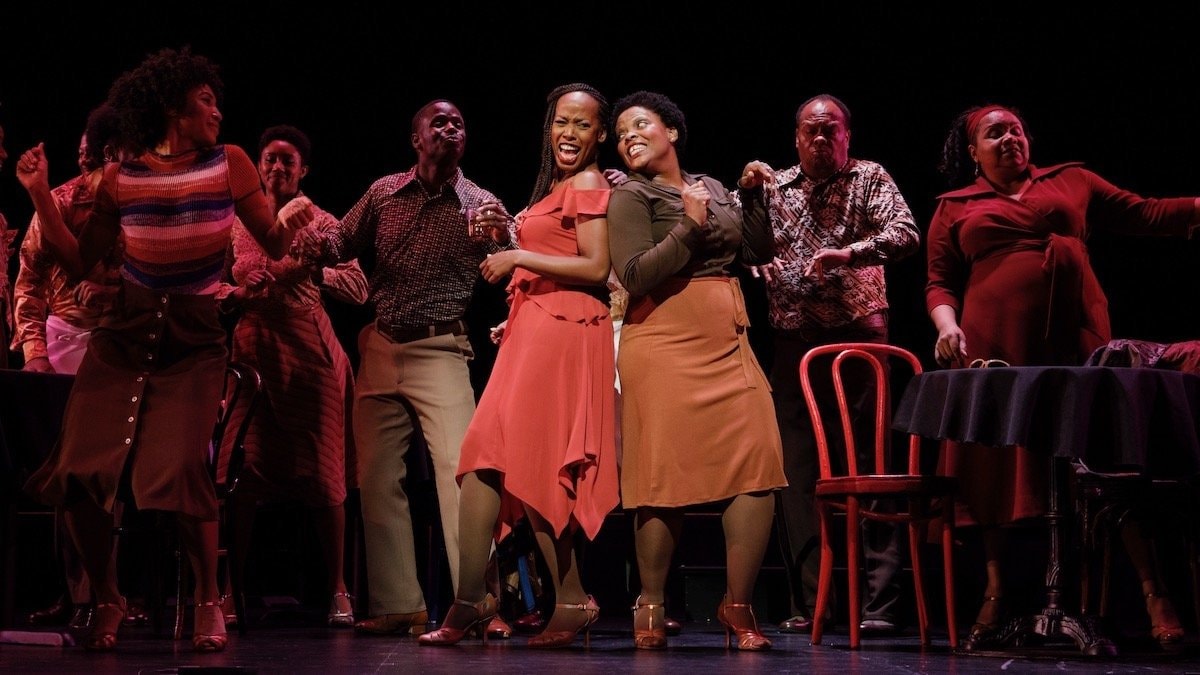
“Kay Thompson and the Williams Brothers packing ‘em in at the Persian Room… Those rumors about Lena Horne just won’t quit. Grace Kelly, fresh off High Noon, making yet another married movie star regret he ever said love, honor and oh the hell with it.”
Sweet Smell of Success (US/UK) opens on an immaculately tuxedoed gentleman, haloed in Lucky Strike cigarette smoke. He casually name-drops this list of post-war American luminaries and pithy nuggets of gossip as his secretary click-clacks at her Olympia Deluxe typewriter. With that, Broadway audiences are thrust into a world of duplicitous ambition set to an iridescent and bombastic score by Marvin Hamlisch, poetic lyrics by Craig Carnelia, and an acerbic book by John Guare.
Twenty years have passed since the opening of the Broadway musical based on the 1957 noir film of the same name. The trio of authors delivered a remorseless portrait of New York (not the, but rather a New York) where the Whisperers, a Greek chorus of smartly dressed scandal-chasers, pant and clamor for the slightest bit of dirt on quite literally anyone – and where everyone is automatically named guilty in the court of public opinion.
Hamlisch’s orchestration is rife with screaming trumpets and frenzied sixteenth notes that underscore the perpetual hustle of a turbid city consumed by hunger for its favorite meal: schadenfreude.
As the song proclaims: Welcome to the night!
At the center of the piece is JJ Hunsecker, the charismatic but contemptible gossip columnist around whom the world’s status seekers and starlets orbit. JJ is a little bit Roy Cohn and a lot Walter Winchell, a despot with a typewriter whose turn of phrase could plummet or elevate any career.
Morally and monetarily bankrupt press agent Sidney Falconi hungers for a scrap from his master’s table and spirals into a game of deception involving JJ’s tyrannically protected sister Susan and her lover Dallas. Sidney’s anthem, “At the Fountain,” refers to the Hollywood myth of a talent agent discovering Lana Turner as she sat at the soda fountain at Schwab’s Drug Store. Sidney mentions Lana several times throughout the show; she’s his fame-and-fortune talisman. And now he’s had that slightest taste of stardom, accompanying JJ on his midnight muckrake. The key signature vacillates erratically, a chattering stream of consciousness as he meditates on all the roads that will eventually lead him to fame – not the least of which is a sharp name change. The lyric “Sometimes the perfect timing feels like a work of art” plays like a wink from the writers as Hamlisch toys with the meter and rhythm, finally settling on a stately waltz as Sidney decides tonight is the first night of his new life.
Sidney believes he’s in JJ’s inner sanctum; JJ just asked him to light his cigarette.
JJ employs (rather, threatens) Sidney to keep Susan away from any and all suitors. But love finds a way in the duet “Don’t Know Where You Leave Off.” Hamlisch’s close friend and frequent collaborator, conductor J. Ernest Green, said of the song: “A lesser composer could not have written that piece that effectively.” The piece is composed in a comfortably swinging 12/8 time, as Dallas woos Susan to free herself of JJ Hunsecker’s grip. When Dallas begins, the tune is a tender legato. As soon as Susan protests his worries and reassures him of their future, the time signature is unchanged, but her song becomes jumpy and clipped. “Marvin is creating these rhythms that give you a sense of things not lining up.” Even as the lovers embrace and fall into their duet together, the music itself informs us of the inevitable: they are doomed. Hunsecker, like the 12/8 time, will never change.
John Lithgow, who portrayed the sadistic wordsmith to Tony Award-winning acclaim, described Hamlisch’s work as “hallucinogenic.” The song “For Susan,” one of JJ’s two solo numbers, begins as a loving waltz as he shows off the collection of memorabilia and baubles he’s collected for his sister – for Susan, who is of course his favorite bauble of them all. Just when Susan asserts her first glimmer of independence against him by abandoning their dance, the key changes and what was once a doting melody becomes snarling and rabid. Lithgow astutely noted, “his music was like people spinning out of control.”
Sweet Smell of Success lyricist Craig Carnelia praised the composer for his enviable skills at the piano as they wrote the show. “With Marvin, he’d get a musical idea and then there was no disconnect between what he might want to invent and what his hands did. Most of us will have an idea and think, ‘What is this? How do I do that?’ It was nothing like that. It was astounding to watch and be in the room with.”
When asked to sum up how Sweet Smell of Success fits into Marvin Hamlisch’s legacy, J. Ernest Green summed it up: “It is probably some of the best writing he ever did: the writing, the composition, the way he creates phrases and musical shapes – just absolutely brilliant.”
It would be Marvin Hamlisch’s final Broadway score – twenty years ago this month.
…
For more about Sweet Smell of Success and other great shows, visit Concord Theatricals in the US or UK.
Header Image: 2012 Arcola Theatre Production of Sweet Smell of Success (Tristram Kenton)

Recommended Shows for Drama Festivals

The Truth Behind… The Normal Heart


